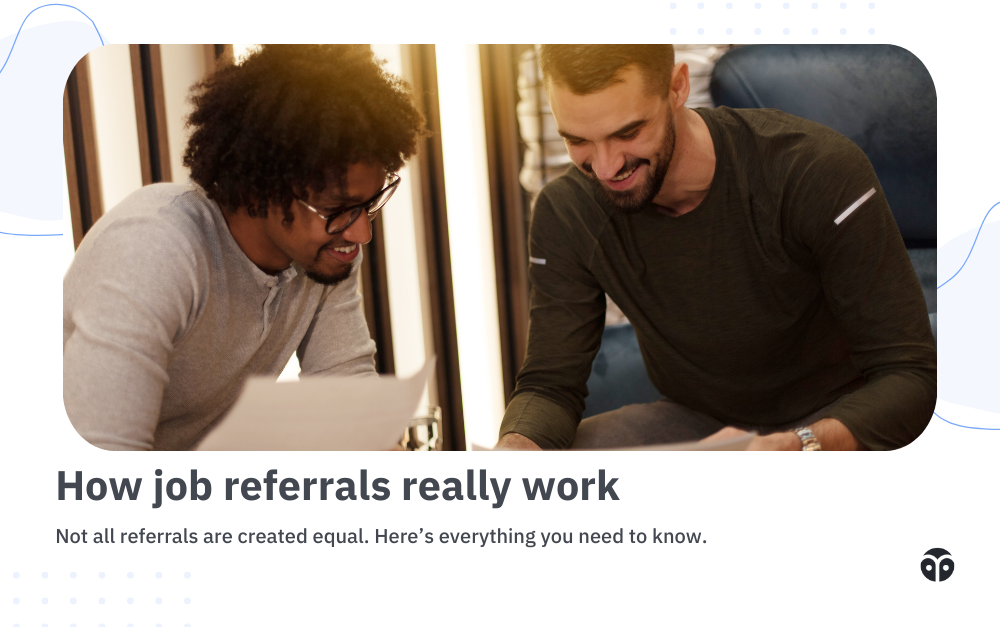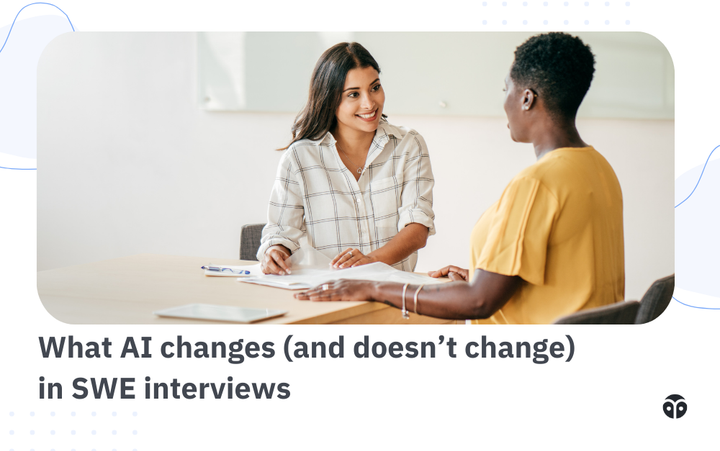How job referrals really work
Not all referrals are created equal. Here’s everything you need to know.

When people think of job referrals, there’s often a misconception that getting someone to refer you automatically gives you a free pass to the next stage in the hiring process. But the reality is much more nuanced. Referrals come in many shapes and sizes, and understanding how they work can help you leverage them more effectively in your job search.
Not all referrals are created equal
Years ago, referrals were much more effective because they were less common and typically higher touch. In today’s job market, Applicant Tracking Systems (ATS) have made it easy for employees to submit referrals with just a click of a button. As a result, referrals have become more diluted. Many companies now receive hundreds of referred applications, which means your referral might not stand out as much as you hope.
There’s a common belief that a referral is a one-size-fits-all solution to getting an interview. But in practice, referrals span a spectrum, ranging from low-touch, automated referrals to high-touch, personal recommendations. The key is understanding the type of referral you’re getting and what it really means.
Low-touch referrals
These are the most common. An employee at a company submits your name through an internal referral system, which may flag your application in the ATS. A recruiter sees the referral in the ATS, which might help boost the candidate’s profile, allowing their resume to rise to the top of a large stack. It’s often used when someone at a company is willing to refer a candidate but doesn’t have a deep or personal connection with them.
High-touch referrals
In this case, the referring employee, typically someone senior or with influence, contacts a recruiter or hiring manager directly to advocate strongly for the candidate. The referrer may put their reputation on the line by vouching for the candidate's qualifications and fit for the role. This kind of referral often comes from someone who has worked closely with the candidate or who deeply trusts another colleague's recommendation.
Why high-touch referrals are so effective
High-touch referrals work because they signal to the company that someone they trust is willing to put their credibility on the line for you. This type of referral is rare, though, and doesn’t happen just because someone likes you. The referrer needs to have a strong, direct sense of your skills or trust someone else’s strong recommendation.
For example, at a large FAANG company, a senior engineer who refers you directly to a hiring manager is essentially saying, “I believe this person is a strong candidate for this role.” If the hiring team has a matching position available, it’s highly likely you’ll at least get a serious look.
Why low-touch referrals are less reliable
Low-touch referrals are less effective because, in many cases, the person referring you doesn’t know you well enough to vouch for your skills. They might simply submit your name through the company’s referral system as a favor or because they’re incentivized by a referral bonus.
While this might help your resume rise slightly in a long list of applicants, it’s unlikely to push you through the process if your qualifications don’t match the job requirements well. Recruiters will still rely heavily on your resume and experience to make a decision.
How you can increase your chances of getting a strong referral
At Formation, we get asked all the time: “Can you refer me to a company?” While we would love to help in every case — and we do equip you with the resources and network to make this a reality for some —the truth is that guaranteeing referrals isn’t effective or ethical, and programs that guarantee this may be focused more on quantity than quality of referral. High-touch referrals are built on trust and personal relationships, and we want to ensure that when referrals happen, they are genuine and based on confidence in the candidate’s abilities.
Our approach is focused on preparing you to be the strongest candidate possible, so when a referral opportunity arises—either through a peer, a mentor, or a Formation network connection—you’re ready to impress. We facilitate connections, mock interviews, and practice sessions to help you build the relationships that may lead to referrals, but we don’t offer a blanket guarantee because it’s the quality of the referral that matters most.
You can work toward securing a high-quality referral a few ways:
- Participate in peer coding opportunities and group sessions. Make genuine connections. Peers or mentors who see your strengths firsthand are more likely to vouch for you when the right opportunity arises.
- Demonstrate your skills. Participate in mock interviews and coding challenges where others can see you in action. The more visible you are, the more likely someone will feel comfortable referring you with confidence.
- Focus on long-term networking. Rather than asking for a referral right away, focus on building long-term relationships. Attend events, stay engaged with your professional community, and create meaningful connections that can lead to organic referral opportunities. Ask your network how you can help them and be helpful to others. If you provide help and value, they’re more likely to remember you when a referral opportunity comes up.
The bottom line on referrals
The most effective referrals come from those who truly believe in your abilities and are willing to put their reputation on the line for you. At Formation, we aim to help you build the skills and relationships that lead to meaningful referral opportunities. Focus on being the best candidate you can be, and when the time comes, a strong referral will follow.
Get holistic interview prep with Formation
The Formation Fellowship gives mid-level and senior engineering job seekers everything they need to land their dream roles—including personalized skill brush-ups, resume help, unlimited mock interviews with experienced software engineers and hiring managers from top-tier tech companies, career and negotiation support, and more.
If you’re having trouble navigating your job search on your own, apply here and get unconditional support from a team of engineering mentors, technical recruiters, career coaches, and more.



